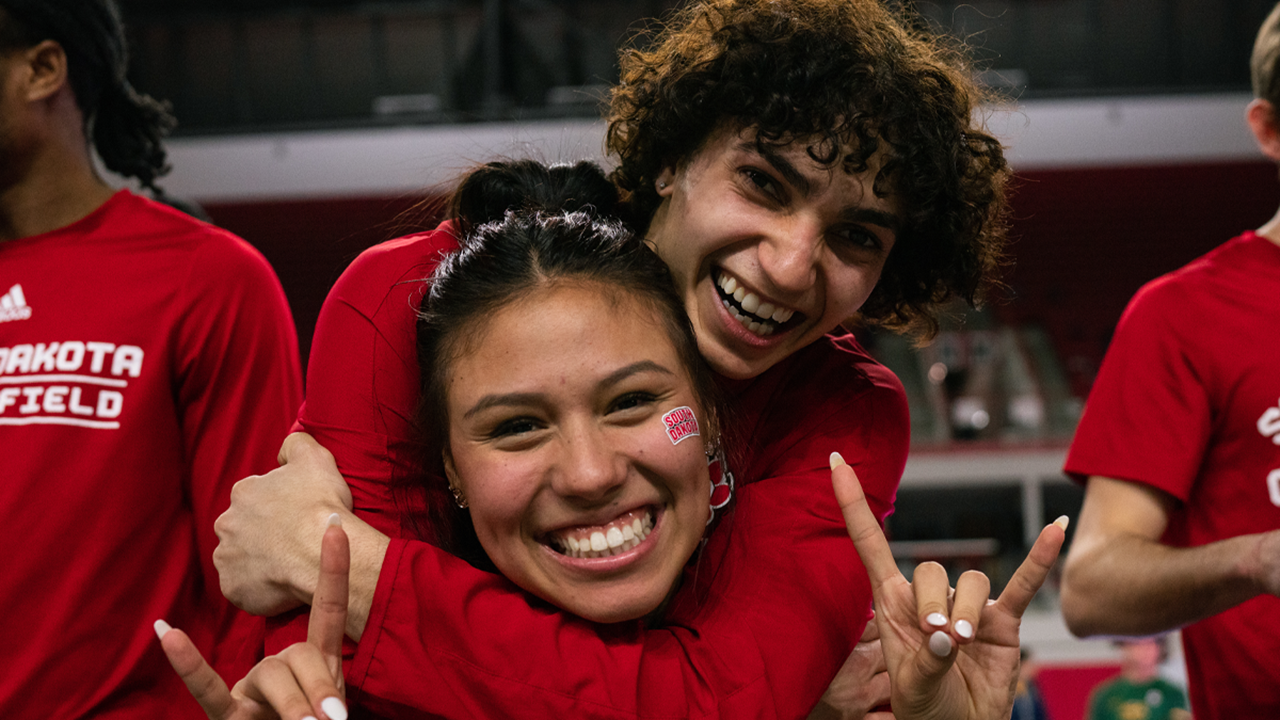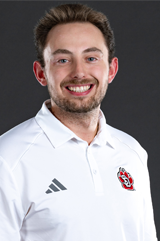Championing Student-Athlete Mental Health: Tanner Peterson Serves in New Role Aimed at Protecting Player Well-Being

Tyrell Terry, a standout basketball player in high school and college, retired from the NBA just two years into his career after experiencing some of the “darkest times” of his life while playing the sport. Similarly, Simone Biles, the most decorated gymnast in history, took a two-year mental health break after pulling out of the Tokyo Olympics in 2021.
Terry and Biles are indicative of a broader trend surrounding the topic of mental health, specifically in the realm of sports. More athletes, both at the professional and collegiate levels, have been taking long-term breaks – sometimes stepping away from sports entirely – as they grapple with mental health challenges.
Understanding the critical importance of mental health in student-athletes’ overall well-being, USD created a position in the Student Counseling Center to prioritize the mental health of student-athletes, providing them with specialized support aimed at protecting their emotional wellness.

For Peterson, the opportunity to be a mental health resource for student-athletes in a Division I athletic department is something he’s always dreamed of.
“The opportunity to work with some of the premier student-athletes the NCAA has to offer – it’s simply great,” Peterson said. “At USD, having the balance of working at a smaller university and being able to be connected across campus while also working with student-athletes who compete at the highest level is a picture-perfect balance in my eyes.
Research shows that student-athletes are more at-risk of mental health concerns compared to their peers, Peterson said, which makes his role critical in protecting the mental well-being of student-athletes at USD.“To be able to have an impact at a university that wants to put mental health at the forefront of what it means to be a Coyote student-athlete, it just really excites me."
Student-athletes are affected by common mental health concerns like anxiety and depression, and they also feel the unique demands that go along with being athletes – an immense pressure to perform, succeed in the classroom, and get involved on and off campus – all while trying to navigate being a functional college student.
“My role is to help Coyote student-athletes iron out all the challenges of being a student-athlete, regardless if sport or the challenges of life are the root cause,” Peterson said.
While student-athletes have undoubtedly experienced mental health struggles in the past, Peterson acknowledges that talking about these challenges in the collegiate sports environment is a bit of a new phenomenon.
“We’re seeing a new wave of prioritizing mental health, which is great,” said Peterson. “It reinforces that physical health and mental health are on the same platform and that it’s okay to take a step back.”
It’s generally easy to see when a student-athlete is suffering from a physical injury – they may be on the bench, wearing a walking cast or leaving the court on crutches. For mental health challenges, however, it’s much more difficult to recognize when a student-athlete may be struggling.
“When someone sprains their ankle, they might show up to class or practice the next day in crutches, a boot or ice, or there’s something visible that shows that ‘This person isn’t doing well,’” said Peterson. “But when someone’s experiencing really intense anxiety or they had a parent pass away and they’re struggling with that, there’s no telltale sign that shows, ‘Hey, this person might be struggling,’ and that can provide challenges for that individual to speak up.”
While taking the first step in seeking mental health support is never easy, Peterson hopes that making himself visible to student-athletes can make the process less intimidating.
“My goal is for student-athletes to get to know me, see me around and understand that I’m simply here to support them,” Peterson said. “In my role, I’ll never escape the stigma that might come with seeing me, but my goal is to make it a norm to see me around games and practices. I don’t want to be seen as someone who only shows up when someone is in a rough spot. I’m here for the highs and the lows.”
For Peterson, the first step in combatting the stigma around mental health is to talk about it.
“It’s about having conversations, talking about anxiety, depression, recognizing that humans have emotions and it’s okay to talk about them. It’s okay to have a big life experience and struggle with it,” said Peterson. “All those things are part of what makes us human, so it’s important for us to have those conversations, have courage to lean into discomfort and talk about these challenges in order to move forward.”
“As I often say with my clients, you don’t have to be at rock bottom to seek help,” he continued. “If you take the leap and do scary things now, that usually gives you the ability to do pretty cool things down the road.”
Peterson comes to Vermillion from Maplewood Psychology Clinic in Minnesota, where he served as a mental health therapist. His role included conducting individual sessions with clients, using theory- and research-based practice to provide treatment. He has also worked as a mental performance coach, a role that allowed him to work with coaches, athletes and performers to highlight and improve mental resilience.
Peterson graduated from Concordia-St. Paul in 2018 with a bachelor’s in sport psychology and then went on to complete a pair of master’s degrees in mental health counseling and sport and exercise psychology from Minnesota State University.



